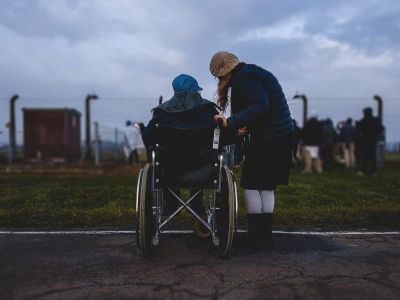The Elder Care Epidemic

About 10,000 Americans turn 65 every day and by 2030 they'll be part of a large swath of the population (72 million). Longer age spans are creating both problems for elders wanting to live more independently and opportunities for younger retirees looking for some extra income. Matching the younger retirees with elders in need will help families everywhere.
While medical care can and should be handled by professionals, there are thousands of elders, just needing housework help, someone to run errands, and drive them to medical appointments. But for those elders whose families are far away or unable to offer assistance, new businesses are emerging to meet this need. Envoy, operates in the San Francisco area, while Elder Concierge Services helps elders in the Denver region. The idea is catching on nationwide.
Caring for aging elders is often handled by family members—especially women in the 40-60 age "sandwich" generation—where they care for family on both sides of the age spectrum. In fact, family caregivers contribute $470 billion in unpaid assistance. With elder finances stretched tight, this can often be the only option. Many communities offer respite care for elders, so the caregivers can have an afternoon off. Sadly, budgeting for the sunset years hasn't been easy with rising medical costs and extended lifetimes.

The demand for elder care is only going to increase for the second largest demographic in our nation. While government programs offer minimal services, the private sector can deliver dependable care for reasonable costs. But for many of the elder care workers, it's more than just a part-time job, they see it as a blessing to help those who just need an extra hand and some companionship. Perhaps these new elder care start-ups will be part of the answer to the elder care epidemic.




























